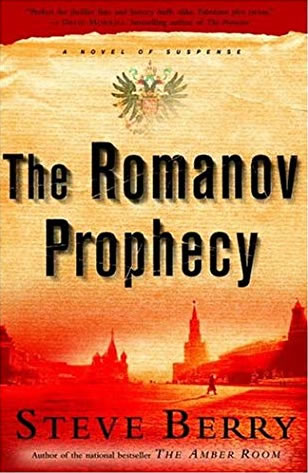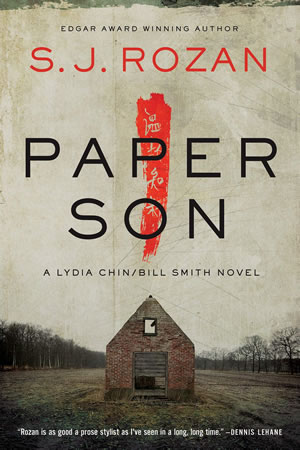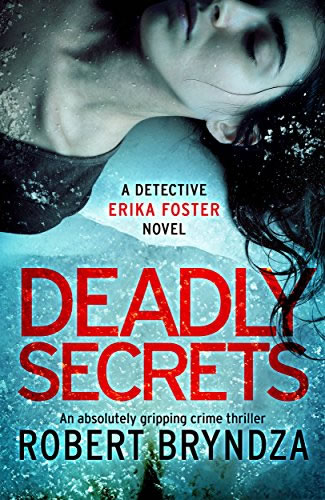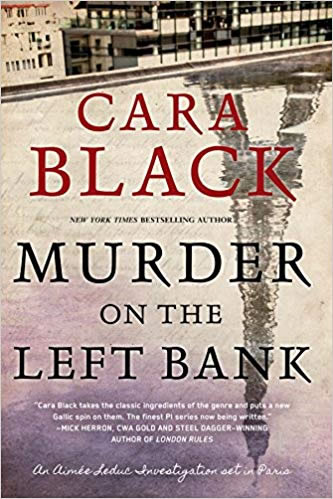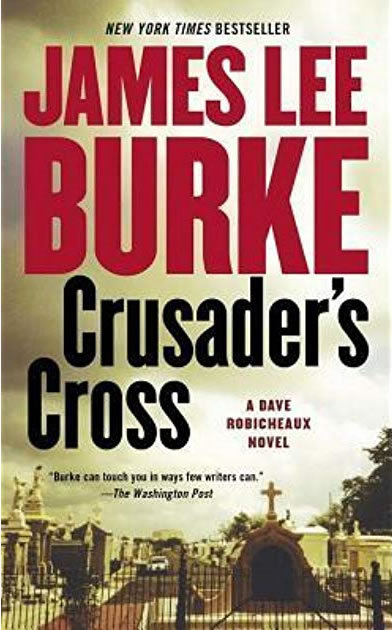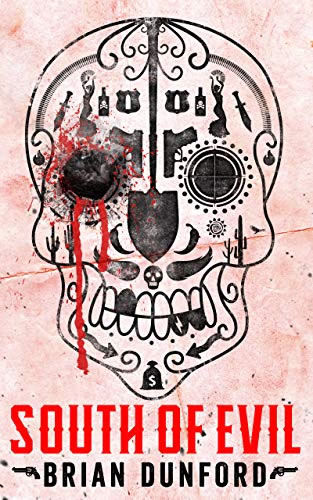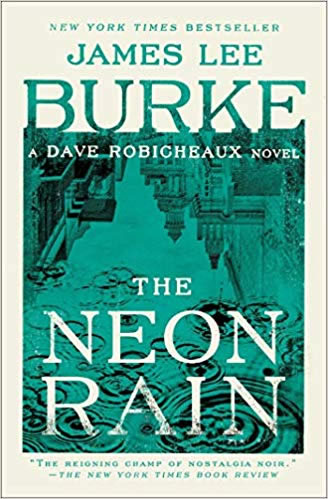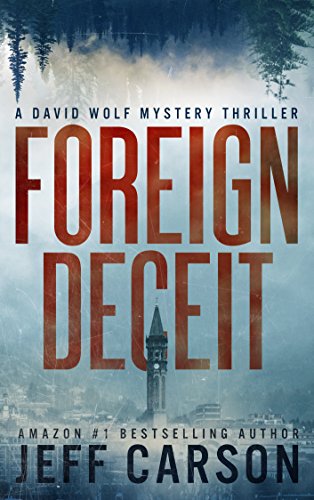
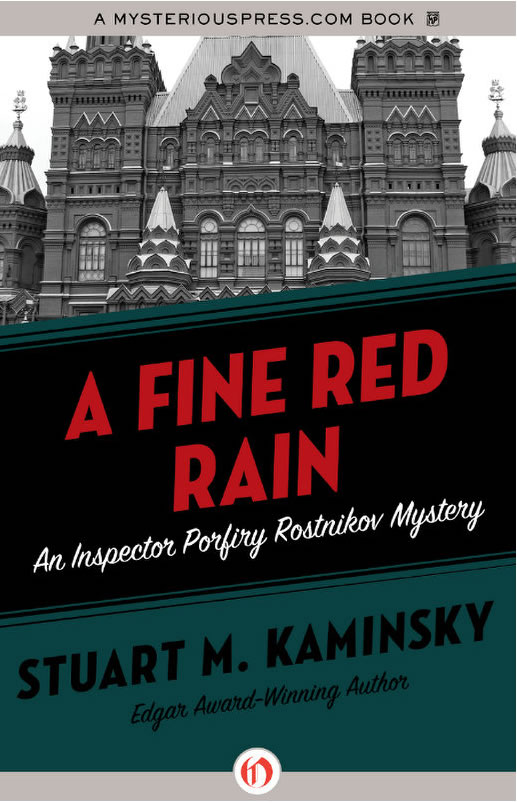 A Fine Red Rain by Stuart M. Kaminsky is the fourth novel in the Inspector Rostnikov series written in 1987. I read the kindle edition from Mysteriouspress.com even though I have a copy of the Ivy Books paperback. I just find it easier somehow to take notes on the kindle. I’m starting to get much more comfortable being able to whip it our and read almost anything almost anywhere. Besides, the paperback is starting to show its age a bit.
A Fine Red Rain by Stuart M. Kaminsky is the fourth novel in the Inspector Rostnikov series written in 1987. I read the kindle edition from Mysteriouspress.com even though I have a copy of the Ivy Books paperback. I just find it easier somehow to take notes on the kindle. I’m starting to get much more comfortable being able to whip it our and read almost anything almost anywhere. Besides, the paperback is starting to show its age a bit.
But this story
really highlights Inspector Rostnikov’s deep-set sense of curiosity. While out
near the park on a lightly raining morning, investigating a trivial matter as
part of his diminished duties, he observes a disturbed drunken individual atop
a tall statue. Ranting as some people do, the inspector pays scant attention.
Until the man leaps from the statue to his death below. Something within the
inspector takes note. Although there is a corpse on the ground, there is a
question in the air. Why.
Rostnikov had
recently been transferred “on temporary but open-ended duty” to the MVD—the
police, uniformed and ununiformed, who directed traffic, faced the public, and
were the front line of defense against crime and for maintenance of order. As
he reports in for the morning meeting he takes his place with the other senior
staff. In going over the day’s assignments he recounts the story of the
apparent suicide.
You would think that
curiosity would be a central motivator for most of the detectives here in the
Moscow that Kaminsky shows us so clearly, but it’s suspicion, a misplaced
distrustful emotion amongst the Gray Wolfhound’s senior staff that pervades the
unit. They are typical of the suspicion, not curiosity that pervades the police
investigative unit. Their suspicion fuels unproductive speculation, where as
Rostnikov’s curiosity fuels productive questions… the who, what where… and
crucially, the ‘why’ of people and their actions and intentions. Its curiosity
that leads Rostnikov to take as his assignment an investigation into an
apparently unrelated accidental death of a circus performer.
At a local circus
there is a performer, and aerialist who was fallen through an unsecure safety
net. Though there is a corpse there on the ground, there is a question
lingering in the air. Why. And is it just curious coincidence that the
aerialist’s partner just leapt from a statue this morning?
But the ending, the scene of Inspector Rostnikov at Gogol’s statue in the park, the ‘full circle’ as it where, that really had a gut impact on me. I could feel the scene in a tangible way that few writers can achieve.
“We must have an adequate termination of a greater percentage of our cases, our responsibilities,” said Grigorovich, looking at Rostnikov, who continued to frown at the pad of paper on which he was doodling.
“Paperwork, evidence, must be more complete, investigations better documented, before we turn each case over to the Procurator’s Office for prosecution or further investigation,” Grigorovich went on.
“Yes,” Pankov agreed.
“Comrade Inspector,” the Wolfhound said, snapping the pointing finger of his right hand at Rostnikov. “Your views? You have had time to gather your thoughts. Perhaps your delay this morning was due to your diligence in preparing for this meeting?”
“This morning,” said Rostnikov slowly, his eyes coming up from the poor copy of Gogol’s statue he was working on, “a man leaped to his death from the new Gogol statue.”
The silence was long as they waited for Rostnikov to continue. Outside and below them, in the police-dog compound, a German shepherd began to bark and then suddenly went quiet. When it became evident that Rostnikov had no thoughts of continuing, Snitkonoy prodded as he stepped back and tilted his head.
“And the point of this, Comrade Inspector?”
Grigorovich and Pankov turned their eyes to Rostnikov, who sighed, shrugged, and looked up.
“I wondered what would so frighten a man that he would do a thing like that,” Rostnikov mused. “Leap head-first to the pavement. Crush his skull like an overripe tomato.”

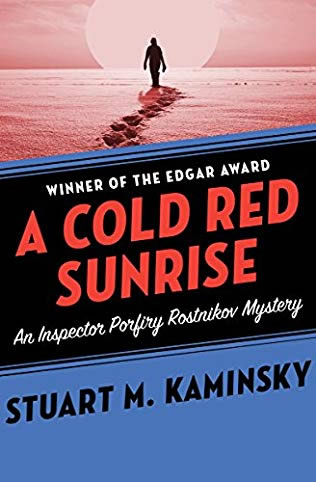 A Cold Red Sunrise by Stuart Kaminsky is the fifth Inspector Rostnikov novel. It was published in 1988 a time of turmoil in the Soviet but not reflected in the macro level of this story. No, this is a basic investigation of the murder of a minor Commissar who was conducting an investigation at the time of his murder. The fact that this assignment was pass to Colonel Snitkonoy’s MVD Unit makes Rostnikov suspicious. But, an assignment is an assignment and its off to the scene of the crime.
A Cold Red Sunrise by Stuart Kaminsky is the fifth Inspector Rostnikov novel. It was published in 1988 a time of turmoil in the Soviet but not reflected in the macro level of this story. No, this is a basic investigation of the murder of a minor Commissar who was conducting an investigation at the time of his murder. The fact that this assignment was pass to Colonel Snitkonoy’s MVD Unit makes Rostnikov suspicious. But, an assignment is an assignment and its off to the scene of the crime.
